
Gene Simmons: “There are some tracks where I don’t recognise myself, and I don’t know why that is”
The release of a mammoth career-spanning box set gave us the ideal opportunity to talk songwriting with the infamous Kiss frontman
As a co-founder and frontman of rock band Kiss, Gene Simmons is one of the most recognisable figures in music. Having sold 100 million albums worldwide and been awarded 30 gold albums, the success of Kiss is quite staggering. It’s not just his larger-than-life personality that has helped the band reach such a lofty status. His writing on tracks such as Rock And Roll All Nite and Calling Dr. Love have played an equally important role in their popularity. Yet if you were to list Simmons’ accomplishments, from singer to entrepreneur, it’s doubtful that ‘songwriter’ would be near the top.
His new box set The Vault, might readdress that. In typical Simmons fashion, it’s a bold statement; housed in an actual vault that he will hand deliver around the world to those who have purchased it. That’s precisely what you’d expect from someone who is just as renowned for his business savvy as his musical prowess. More surprising are the 150 tracks contained within. Spanning half a century of creativity, the songs show his musical evolution and surprising diversity and even feature collaborations with Bob Dylan.
We recently caught up with Simmons to delve a little deeper…
What can you tell us about The Vault?
“Well first, people have to understand that talking about it is not the same thing as seeing it. If I mentioned Godzilla and said to you that, ‘It’s the biggest monster of all time,’ that’s still not the same as seeing it. Holy shit, you have to see it and feel it. But I’ll try and describe it…
“It is the largest box set of all time; it is three feet tall, has metal wheels and is 38 pounds. You physically have to use two hands to pick it up. Inside are 150 unreleased tracks that span half a century from 1966 to 2016.”
It sounds like it covers your entire writing career?
“I saw The Beatles on The Ed Sullivan Show in America in 1964 and by 1966 I was writing my own songs. I’d just learned a few songs on guitar and the very first song that I wrote I actually recorded and it’s on the box set and is called My Uncle Is A Raft. It’s actually not bad, it sounds like The Kinks of something. Bob Dylan and I wrote a few tunes together 18 years ago and that’s in there. In fact, the songwriting session with Bob was recorded and stuck in the box set. I discovered Van Halen in the 70s and the brothers Van Halen were kind enough to join me in the studio for three tracks, Christine Sixteen and two others. Jo Perry from Aerosmith is on one and the entire Kiss guys are on all kinds of tracks.
“There are many other surprises; there is a huge art book, 50,000 words with hundreds of photos from my collection. There’s a Gene Simmons action figure, a huge gold coin that says in Latin: ‘If it’s too loud, you’re too old,’ and personal gift items in each box set. So there’s a secret door, you press it and it opens up and inside I’ve put something like a scarf or gloves that I wore on tour, they’re all collectible. Additionally, and more importantly, people can only order the box set by going to genesimmonsvault.com. This won’t be in stores, there won’t be a cheaper version, we’re not going to do downloads, none of that stuff. When you buy a Rolls Royce it comes at one price. There are a very limited number being put out around the world and, unlike anything that has ever been done before, I’m going to take the box sets around the world and hand deliver them to the fans.”
What made you decide to do that?
“It’s a great outlet because I get to be the extrovert that I am. I’ve been writing all my life and there are an awful lot of songs that I’ve demoed that don’t sound like Kiss, some do some don’t. When we recorded I’d get five of my songs on an album and Paul [Stanley] would get five or six. I’d have to put away the other songs and over the years it kept growing and I was thinking, ‘What am I going to do with all these songs that have never been released?’
“I kept them in oxygen-controlled and humidity-controlled vaults, ten years ago I started thinking, ‘Why don’t I just put them out?’ and it took me a while to figure out, because record companies are broken, retail is broken, stores don’t work anymore. I wanted to do something that had impact. A kick in the nuts. Something that nobody has done before. So I am going to go around the world, bypass stores and make sure people know it’s from me to them.”
What was it like listening back to songs from five decades ago?
“It brings back so many vivid memories, especially for me because I’ve never got high or drunk in my life. Where I was, who I was seeing and all this stuff. Some of the songs sound like Kiss and some don’t. There are some Beatles-esque things, some baroque string quartet things, some RnB and blues. They run the gamut of styles that I’m attracted to. When I first came to America I didn’t hear the Beatles. I came here in 1958, Beatles didn’t hit until ‘64. The first music I heard was black music; Little Richard, Chuck Berry, Fats Domino, the same things that the Beatles did. Then when I saw The Beatles on The Ed Sullivan Show it all made sense, all the DNA that came before them and became a part of them. Once I saw The Beatles, within two years I started writing my own songs.”
How important was New York to your early songwriting?
“New York was important because you were surrounded by all the media and all the music and there were 24-hour stations that played black music. In those days they were called ‘race records’. You had guys like Pat Boone covering Blueberry Hill by Fats Domino, because Fats Domino couldn’t get airplay on white radio. In New York you could hear most of it, but if you lived in South Carolina then you couldn’t get much of anything. It’s the difference between living in London or Lowestoft.”

Gene Simmons: “Before I started writing songs I thought that all the songs and all the words had been written”
Who are the songwriters that have had the biggest effect on you?
“It would have to be Dylan. There are people on Mount Olympus who you never thought you’d be able to stand beside or near, much less be in the same room with and come up with something together. Maybe nobody’s had a bigger impact on lyrics than Dylan with The Times They Are A Changin’, it was perhaps the most widely recognised lyric of the twentieth century. His songs have been covered by everybody from The Byrds to Jimi Hendrix to Gun N’ Roses. Very few artists have had that kind of impact. His lyrics are notches above and for him to take the time of day to sit in the same room as me is something that I’ll never forget.”
How did that situation come about?
“Well I’m very linear. I learned a long time ago that the only two possibilities in life are ‘yes’ and ‘no’. ‘No’ isn’t so bad, it’s okay, you just try again. I picked up the phone and called the management and said, ‘Can I please speak with Bob as I want to write a song with him?’ Initially it was, ‘I don’t know if that’s possible,’ but within two days Bob was over at my house, very unaffected. There was no sense of, ‘Hey kid, watch out here comes Bob Dylan!’ He was very sweet, very cordial, brought his acoustic guitar and we just sat around and recorded. The ideas came fast and furious. First we talked about it: ‘Hey what are you doing, where are you going?’ But that’s all on the box set; the actual writing process.”
Your writing process is something we wanted to ask you about. How has that changed over the 50 years?
“I never had a ‘way’. I know Elton John well enough and he used to be a songwriter for Engelbert Humperdinck and people like that, and then he met Bernie Taupin. Taupin wrote lyrics, not music, and Elton didn’t want to bother with the lyrics. The process seemed to be that he’d get words from Bernie and then he’d sit down and start writing the songs based on those lyrics. There really is no way, not for me. I start with a riff or a melody or a lyric, or sometimes nothing. I’ll just start scatting and out of 100 ideas I might get a handful that appeal and then you keep developing them further. Though it’s also fair to say that one or two songs come out fully written. There’s no rhyme or reason.”
Do you have to specifically calve out time for songwriting these days?
“No. Ace Frehley, who hasn’t been in Kiss for a while, called me a few months ago and asked if I’d come out and write some songs with him. So I drove out and within an afternoon we came up with two things, one is called Your Wish Is My Command. He just demoed it and it sounds great. You can sit there sometimes for hours and nothing will happen or you can sit down and immediately say, ‘Oh, what’s that?’”
Do you prefer that type of collaboration or writing on your own?
“I wrote most of the 150 tracks by myself but then a handful were co-written with other people. The Van Halen brothers appear on three tracks that I wrote, but they didn’t co-write. Joe Perry appears on a track as a guitar player but did not co-write. But I did co-write with a few other guys that have not become household names but are still very talented.
“I can listen to some of the stuff that I wrote myself where I play all the instruments and all the background vocals that and then listen to another track and they don’t seem to bear a resemblance to each other stylistically, so it’s difficult. When I hear McCartney, whether he’s by himself or with The Beatles, I hear McCartney. There are some tracks where I don’t recognise myself, and I don’t know why that is.”
Are there any recurring themes that crop up across the 150 tracks?
“Themes, no. I tried not to write about love because I think it’s an easy quagmire. You start writing a song about a broken heart or love and you know the canvass, it’s a familiar canvas because there have been thousands of songs written about that. But when Lennon sits down and writes a song called Glass Onion, there’s not many songs that write about that stuff, so I am attracted to all sorts of songs.”
Have any of your old songs become new favourites as you’ve rediscovered them?
“Good question, because in some instances I hadn’t listened to the songs in over 40 years. That very first song I ever recorded, My Uncle Is A Raft, brought back such a flood of memories and I remember when I first recorded it I kept saying, ‘Play it again, play it again,’ because I couldn’t believe that before I wrote and recorded that song it had never existed on earth. It’s a remarkable thing to say, because before I started writing songs I thought that all the songs and all the words had been written. Then out of nowhere this My Uncle Is A Raft Song came out and I couldn’t stop listening to it thinking, ‘Wow, this never existed before and I gave it birth.’ So when I was putting together the boxset I kept playing it over and over again thinking, ‘How did I come up with that, where was that idea from?’”
Lastly, what do you think are the key components of a great song?
“You could say lyrics but there are beautiful melodies, like Sleepwalk by Santo & Johnny which doesn’t have lyrics. You can say that it’s a certain point of view, but there are love songs and all kinds of songs. My favourite song is Smile by Charlie Chaplin, which is not a love song at all. It’s a wonderful idea, and Yesterday is likewise. So it’s difficult to say what it is.
“I don’t know if it was Zappa or somebody else that said, ‘Writing about music is like dancing about architecture.’ Writing about it doesn’t even come close as it’s meant for your ears. Write down the words, ‘She loves you, yeah, yeah, yeah!’ When you look at those words on a piece of paper it’s like, ‘What’s the big deal?’ But when you wrap them around melody and arrangement and harmonies it comes to life. Here’s a good one: ‘A-wop-bop-a-loo-bop-a-wop-bam-boom!’ What the fuck is that? But if you put it in the right context with the melody and lyrics and beat, it’s so cool. It’s a feeling and it sure makes me want to get up and start the day. I have that as my alarm clock and it makes me want to jump out of bed and move. Different music makes you want to sleep, or cry, or be moody or be introspective.”
Interview: Duncan Haskell
To find out more about Gene and The Vault, head to genesimmonsvault.com



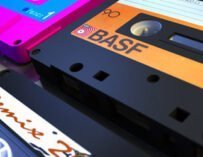
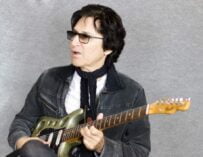
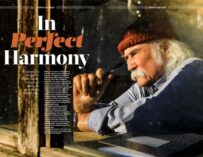



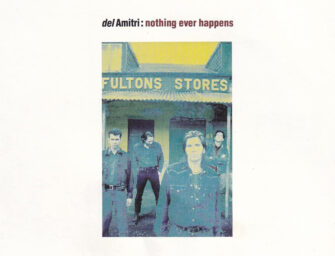

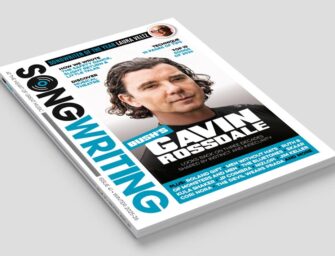
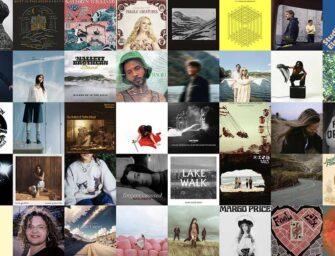




















Related Articles